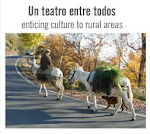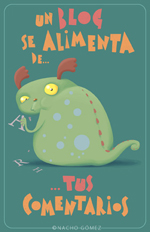Now that our characters have a house and are comfortably settled on our street, we can focus on developing them as individuals. This activity is called "The Party".
 Give each student a character. Go over the 'collective background' that has been developed up to now (who lives where and with whom) so that everyone is clear . Tell them that one of the neighbours is throwing a party and has invited all the neighbours from the street. Decide as a group which character would make the best 'host' - and decide why they are throwing the party.
Give each student a character. Go over the 'collective background' that has been developed up to now (who lives where and with whom) so that everyone is clear . Tell them that one of the neighbours is throwing a party and has invited all the neighbours from the street. Decide as a group which character would make the best 'host' - and decide why they are throwing the party.
Give everyone some time to work on their character - to pad them out with more details about their life - but always building on the base established in previous classes. Where do they work (if they work)? What do they do in their spare time? Are they an extrovert? Do they have lots of friends? Have they had a hard life? Or a life of luxury?
 Once they've had a while to get the details clear, walk round and start inviting certain characters to join the party; the rest keep working on their characters until chosen. The host has to introduce the new arrivals to the rest of the guests and make sure that everyone has a drink and no one is standing on their own as the rest mingle (you, as group leader, have the option of adding the odd bit of extra information about individual characters into the mix - you're an alcoholic; a vegetarian; alergic to eggs etc. - in order to add an element of surprise intot he activity and heighten the need for improvisation.
Once they've had a while to get the details clear, walk round and start inviting certain characters to join the party; the rest keep working on their characters until chosen. The host has to introduce the new arrivals to the rest of the guests and make sure that everyone has a drink and no one is standing on their own as the rest mingle (you, as group leader, have the option of adding the odd bit of extra information about individual characters into the mix - you're an alcoholic; a vegetarian; alergic to eggs etc. - in order to add an element of surprise intot he activity and heighten the need for improvisation.
At the party, the groups mingle and try to 'get to know each other' better - by exchanging information about themselves and finding out things about the rest. The group leader can also feel free to leap into the fray at any given moment - to gate crash as an uninvited (or unwelcome!) guest; as the black sheep of the family; as the tedios uncle; the long lost brother etc to spice things up and see how the others react (and interact).
 After the party, get the group together to share what they have learnt about the different characters from the street (different people will have found out different things). In order to do so, students can get together in small groups - with their 'house group' if they live with other people or with friends or next-door neighbours if they live alone - in order to discuss the party and what they have found out (gossip, in other words!). Each group takes turns to improvise a short conversation (in character) in front of the rest of the group, which will help consolidate the new information for the group as a whole.
After the party, get the group together to share what they have learnt about the different characters from the street (different people will have found out different things). In order to do so, students can get together in small groups - with their 'house group' if they live with other people or with friends or next-door neighbours if they live alone - in order to discuss the party and what they have found out (gossip, in other words!). Each group takes turns to improvise a short conversation (in character) in front of the rest of the group, which will help consolidate the new information for the group as a whole.
People who live together can choose some kind of domestic context (breakfast the next morning, for example) or they can find a more imaginative setting. People who live alone..... well, they can get gossiping over the garden fence with their neighbour.

Encourage them to share not just the tangible details learnt about their neighbours, but also the feelings and sensations they provoke (do they like them? - in other words - and why or why not?). They can improvise any number of conversations with different combinations of characters and in innumerable contexts.The sky is really the limit....
Give everyone some time to work on their character - to pad them out with more details about their life - but always building on the base established in previous classes. Where do they work (if they work)? What do they do in their spare time? Are they an extrovert? Do they have lots of friends? Have they had a hard life? Or a life of luxury?
At the party, the groups mingle and try to 'get to know each other' better - by exchanging information about themselves and finding out things about the rest. The group leader can also feel free to leap into the fray at any given moment - to gate crash as an uninvited (or unwelcome!) guest; as the black sheep of the family; as the tedios uncle; the long lost brother etc to spice things up and see how the others react (and interact).
People who live together can choose some kind of domestic context (breakfast the next morning, for example) or they can find a more imaginative setting. People who live alone..... well, they can get gossiping over the garden fence with their neighbour.
Encourage them to share not just the tangible details learnt about their neighbours, but also the feelings and sensations they provoke (do they like them? - in other words - and why or why not?). They can improvise any number of conversations with different combinations of characters and in innumerable contexts.The sky is really the limit....





